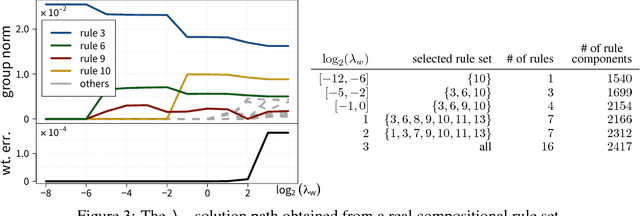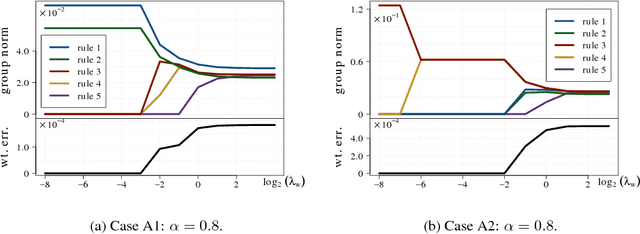Probabilistic Rule Realization and Selection
Paper and Code
Mar 09, 2018



Abstraction and realization are bilateral processes that are key in deriving intelligence and creativity. In many domains, the two processes are approached through rules: high-level principles that reveal invariances within similar yet diverse examples. Under a probabilistic setting for discrete input spaces, we focus on the rule realization problem which generates input sample distributions that follow the given rules. More ambitiously, we go beyond a mechanical realization that takes whatever is given, but instead ask for proactively selecting reasonable rules to realize. This goal is demanding in practice, since the initial rule set may not always be consistent and thus intelligent compromises are needed. We formulate both rule realization and selection as two strongly connected components within a single and symmetric bi-convex problem, and derive an efficient algorithm that works at large scale. Taking music compositional rules as the main example throughout the paper, we demonstrate our model's efficiency in not only music realization (composition) but also music interpretation and understanding (analysis).
 Add to Chrome
Add to Chrome Add to Firefox
Add to Firefox Add to Edge
Add to Edge